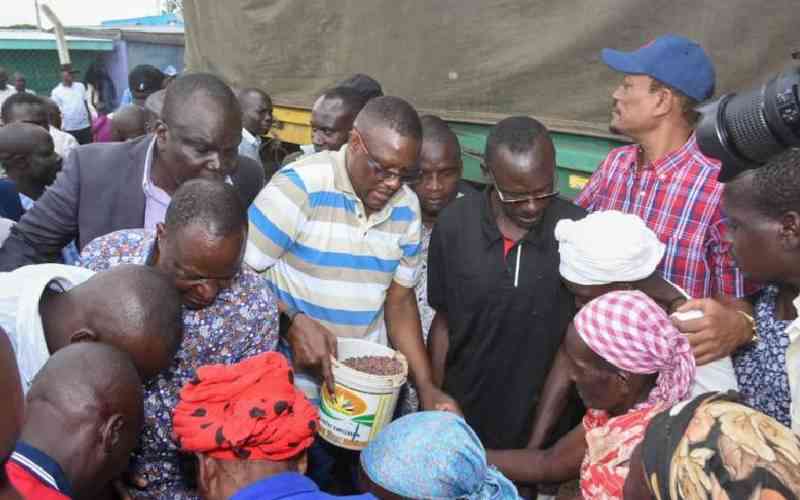×
The Standard e-Paper
Stay Informed, Even Offline

I am surprised that some elected leaders from the Luo Nyanza region are dissuading their constituents from receiving relief food whose distribution is currently being spearheaded by Cabinet Secretary Eliud Owalo.
Those who are opposed to the initiative are seeing the "invisible hand of politics" in the exercise. This is rather strange coming from leaders who should know that unlike the State, governments the world over are conservative political animals keen on self-preservation.